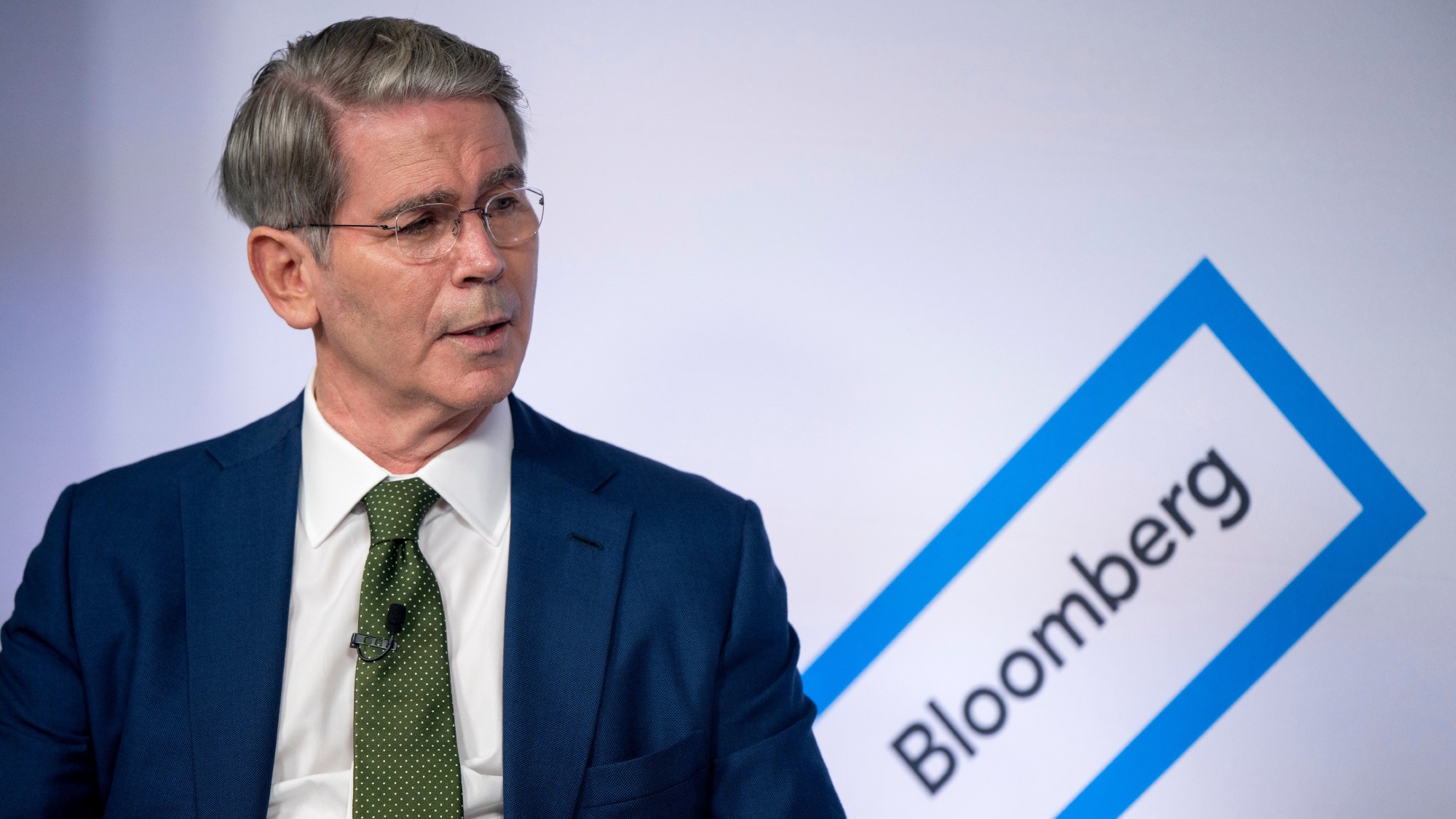What does Trump's Treasury secretary pick mean for the economy?
Scott Bessent was once a Democratic donor. Now he'll serve Trump.


A free daily email with the biggest news stories of the day – and the best features from TheWeek.com
You are now subscribed
Your newsletter sign-up was successful
Donald Trump had two seemingly contradictory goals when picking a Treasury Secretary. He wanted somebody who would keep Wall Street happy. He also wanted a right-hand man to help him execute his vision for higher tariffs on international trade, a shift that makes CEOs nervous. Scott Bessent was the pick.
Bessent, a hedge fund executive, is seen by business leaders as a "safe choice" for the job, said CNN. "Bessent is reasonable and pragmatic," said Jeffrey Sonnenfeld, the founder and president of the Yale Chief Executive Institute. There's hope among corporate types that Bessent will "moderate some of Trump's more aggressive campaign promises" to upend the economy, said CNN. In practice, that means they hope the new secretary will rein in the president-elect on mass deportations and high tariffs. Bessent "understands Smoot-Hawley tariffs exacerbated the Great Depression," said Sonnefeld.
Bessent may not be a status quo pick, said The Wall Street Journal. "We are going to have to have some kind of a grand global economic reordering," Bessent said in June. He has recently argued for "increasing tariffs on national-security grounds" and to promote American interests abroad. But he also believes "time is running out" for the United States to pull back from "excessive budget deficits and indebtedness," said the Journal. That means getting "government spending under control."
The Week
Escape your echo chamber. Get the facts behind the news, plus analysis from multiple perspectives.

Sign up for The Week's Free Newsletters
From our morning news briefing to a weekly Good News Newsletter, get the best of The Week delivered directly to your inbox.
From our morning news briefing to a weekly Good News Newsletter, get the best of The Week delivered directly to your inbox.
The '3-3-3' plan
Bessent was once a major donor "to top Democrats including Hillary Clinton, John Kerry and Barack Obama," said The New York Times. In the 1990s he was a partner at Soros Fund Management and earned the firm $1 billion. Eventually he turned to backing GOP candidates and was early to sign on to Trump's campaign for a second term while many business leaders hesitated. Trump is a ""stock that goes up on bad news," he told one interviewer. In recent months he has pitched a "3-3-3" plan to guide fiscal policy under Trump: Aim for 3% economic growth, reduce the deficit to 3% of the gross domestic product and increase oil production to 3 million barrels per day.
The Treasury pick is expected to implement "policies more favorable to the crypto industry," Dan Runkevicius said at Forbes. The details are unclear, but industry figures expect Bessent to create a "clear regulatory framework for digital assets" that balances the tension between "fostering innovation and enforcing regulation." Crypto leaders are enthusiastic. Ripple CEO Brad Garlinghouse said Bessent is "the most pro-innovation, pro-crypto Treasury Secretary we've ever seen."
Preventing 'another round of sticker shock'
"Whatever happens Bessent will be in the thick of it," John Cassidy said at The New Yorker. Trump is "famously obsessed" with how the stock market responds to his policies and actions. But Trump's promises of deportations and tariffs "could well lead to another round of sticker shock for American consumers" already angry about inflation under President Joe Biden. Bessent's job will be to assure investors around the world of the stability of the American system while being "a voice of reason internally," said Cassidy. "He will have his work cut out for him."
A free daily email with the biggest news stories of the day – and the best features from TheWeek.com
Joel Mathis is a writer with 30 years of newspaper and online journalism experience. His work also regularly appears in National Geographic and The Kansas City Star. His awards include best online commentary at the Online News Association and (twice) at the City and Regional Magazine Association.
-
 6 of the world’s most accessible destinations
6 of the world’s most accessible destinationsThe Week Recommends Experience all of Berlin, Singapore and Sydney
-
 How the FCC’s ‘equal time’ rule works
How the FCC’s ‘equal time’ rule worksIn the Spotlight The law is at the heart of the Colbert-CBS conflict
-
 What is the endgame in the DHS shutdown?
What is the endgame in the DHS shutdown?Today’s Big Question Democrats want to rein in ICE’s immigration crackdown
-
 Currencies: Why Trump wants a weak dollar
Currencies: Why Trump wants a weak dollarFeature The dollar has fallen 12% since Trump took office
-
 TikTok: New owners, same risks
TikTok: New owners, same risksFeature What are Larry Ellison’s plans for TikTok US?
-
 Trump wants a weaker dollar, but economists aren’t so sure
Trump wants a weaker dollar, but economists aren’t so sureTalking Points A weaker dollar can make imports more expensive but also boost gold
-
 Leadership: A conspicuous silence from CEOs
Leadership: A conspicuous silence from CEOsFeature CEOs were more vocal during Trump’s first term
-
 The end for central bank independence?
The end for central bank independence?The Explainer Trump’s war on the US Federal Reserve comes at a moment of global weakening in central bank authority
-
 Will Trump’s 10% credit card rate limit actually help consumers?
Will Trump’s 10% credit card rate limit actually help consumers?Today's Big Question Banks say they would pull back on credit
-
 Can Trump make single-family homes affordable by banning big investors?
Can Trump make single-family homes affordable by banning big investors?Talking Points Wall Street takes the blame
-
 How prediction markets have spread to politics
How prediction markets have spread to politicsThe explainer Everything’s a gamble
